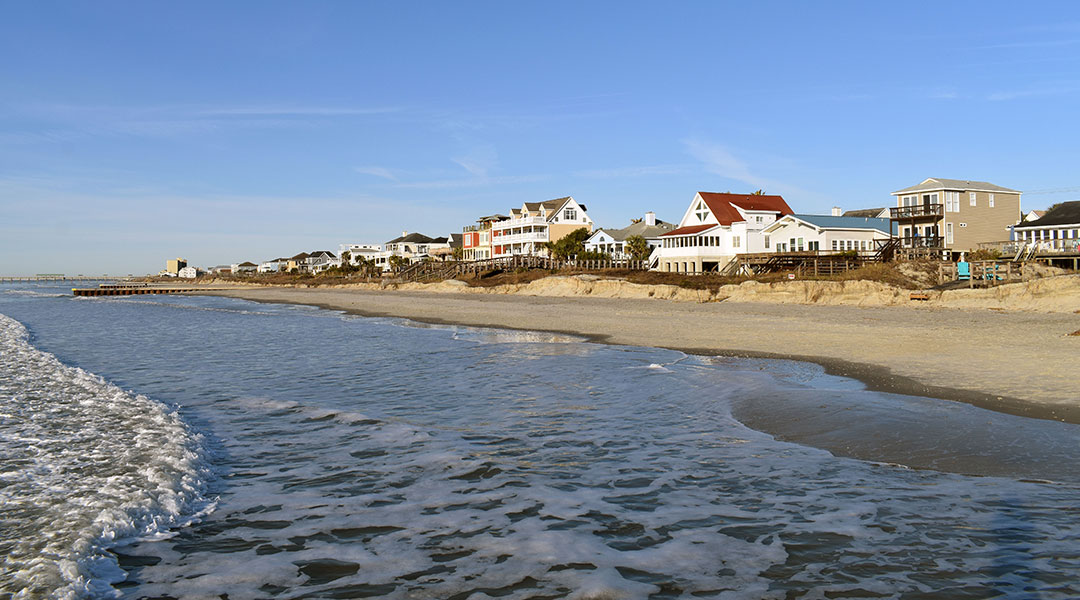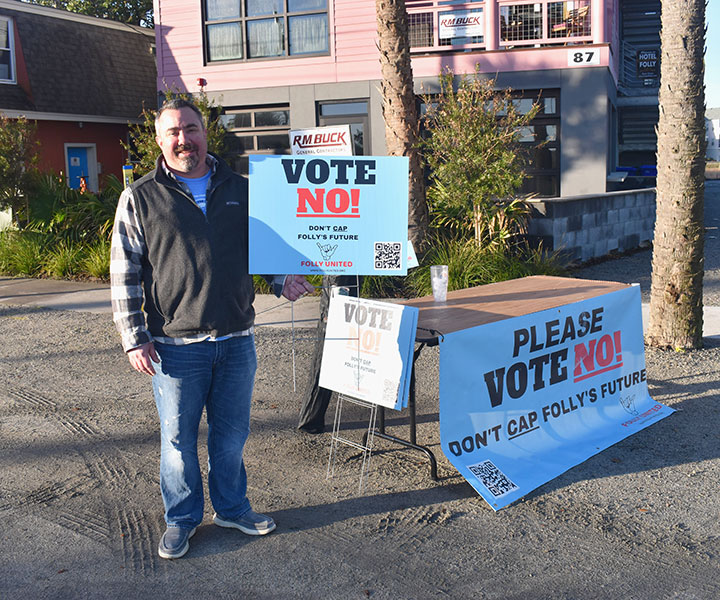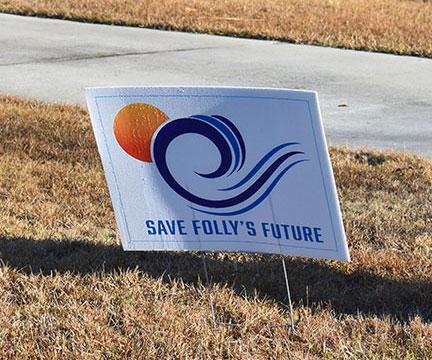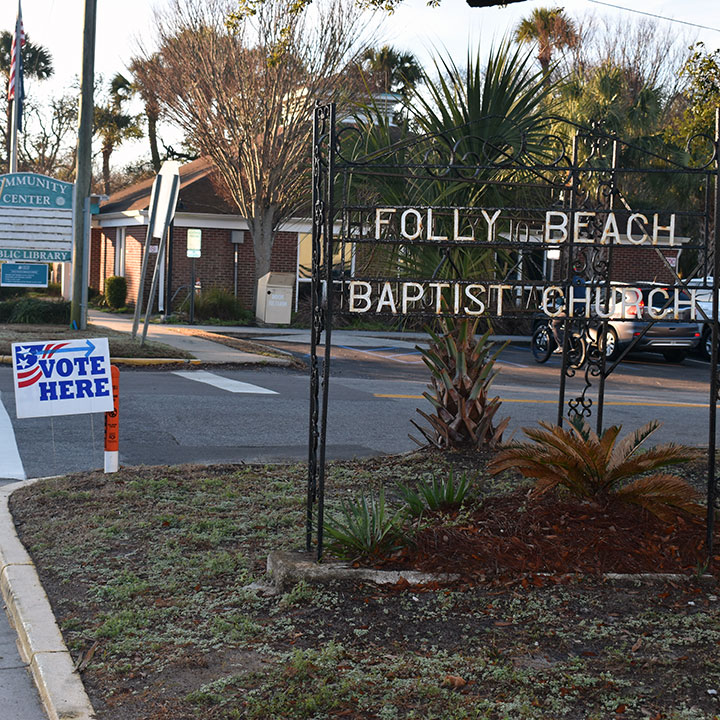A row of beachfront homes along the Folly Beach shore stretches towards the west end of the island. Tourists are drawn to rentals with ocean views year after year. (Photos by Grace Brown)
FOLLY BEACH – Those looking to book their future vacations on Folly Beach may need to start planning ahead after a recent vote capping the number of short-term rental properties on the barrier island.
Folly Beach residents voted “yes” on Tuesday to enact a cap on short-term rentals at 800 units.
The results came in 656-579. The vote is expected to change the course of Folly rentals, similar to what’s happening statewide as cities and counties react to an increase in short-term rentals.
Folly Beach residents have been divided for years on whether to cap short-term rentals.
The beaches of Charleston, including Folly, are largely responsible for the masses of tourists that visit the area each year.
Folly is a popular destination for Upstate, Midlands and Lowcountry folks looking for a weekend escape on the six-mile stretch of a barrier island.
“Tourism, in general, is crucial to Folly,” said Vince Perna, a sign-carrying Folly resident who encouraged people to vote “no” the morning of the vote.
Folly is not the first to see a change in rules and regulations.
The Town of Mount Pleasant capped short-term rental permits at 414 for 2023, half as many as Folly.
The City of North Charleston allows eight guests maximum at any rental, while the city of Charleston allows only four adults at a time in a short-term rental.
The South Carolina Policy Council, an unaffiliated think tank, studied short-term rentals across the state during the summer of 2022.
Folly Beach was included as a “positive example of short-term rental policy,” according to the study.
“The kind of general messaging that we’ve been trying to push to some municipalities is actually to look at the specific problem that your municipality has, and make regulations accordingly,” said Bryce Fielder, senior policy analyst for the Policy Council.
Some residents of Folly and surrounding areas had been campaigning on either side long before the Feb. 7 vote.
Yard signs were scattered across Folly and parts of James Island in support of either “Folly United” or “Save Folly’s Future.”
Before the vote, Folly real estate agent Carrie Rosen wanted the short-term rental cap to be greater than 800.
“If we start a cap north of the amount we have right now, I think we would be able to agree a lot more,” Rosen said. “We wouldn’t have such a divide.”
Rosen helped organize “Folly United,” which argued the cap on short-term rentals hadn’t been fully thought through and feared it would impact Folly’s businesses, taxes and property values.
The other side of the vote was “Save Folly’s Future.”
Its successful mission was to “save a disappearing community and way of life by reversing the island’s population decline,” as said on its website.
A group of residents about a year ago banded together to help create the Folly Beach Residents Association, which supported “Save Folly’s Future.”
The residents association was looking for a compromise, said Ann Peets, who helped the association with its marketing and communications.
“We’re not trying to push people off the island,” Peets said. “It’s a tourist island – everybody gets that. We’re really working together to strive for community balance and quality of life.”
Even though Folly residents have voted “yes” to limiting the number of short-term rentals, that doesn’t mean the issue is settled.
The 1,157 short-term rental licenses held can remain in use until there’s a change of ownership for those properties.
Vince Perna was out before 8 a.m. to show his support for “Folly United” and a “no” vote.
A “Save Folly’s Future” sign, supporting a “yes” vote, is displayed in a James Island front yard, even though the house isn’t inside the city limits.
The Feb. 7 vote, asking residents if they wanted to cap the number of short-term rentals, took place at Folly Beach Baptist Church. Voters were ready at the door shortly after 7 a.m. ,when voting began.





